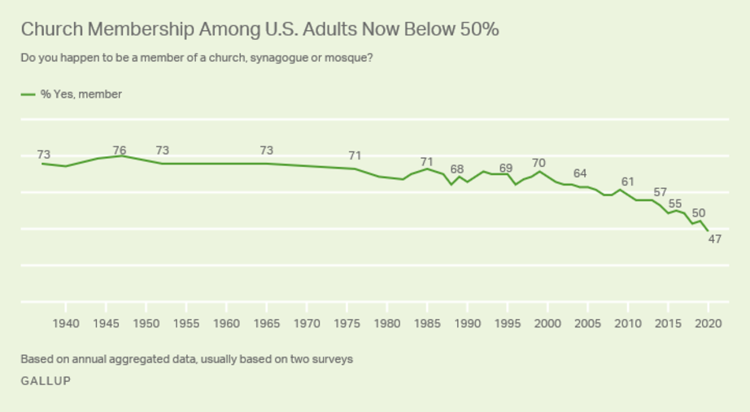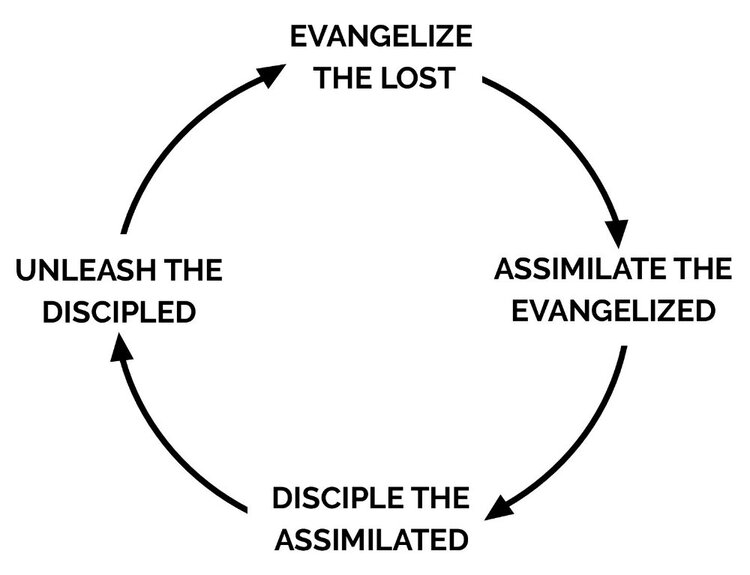Tell me if you’ve heard this one:
There is no real need to focus on evangelism or outreach. In fact, it’s not healthy. The focus needs to be on feeding the already convinced and, from that feeding, evangelism will naturally take place. The most important thing for a church to do is to focus on the already convinced, and then the already convinced will naturally turn outward and reach out to friends and family members with the message of the gospel. The role of the church is for the care and feeding of Christians. If you target non-Christians for outreach, you will necessarily diminish your responsibility to serve Christians.
It’s a very appealing message to the average Christian. The focus remains firmly on them and their felt needs, which anyone would like. They can be fed and not feed, be served but not serve, embrace the rhetoric of evangelism without its practice or, more importantly, its sacrifice. It’s no wonder it’s where most churches have landed.
So, how is that working for us?
Not very well. The rise of the nones just keep rising. According to a recent Gallup survey, Americans’ membership in houses of worship has continued to decline to such a degree that last year it dropped below 50% for the first time in Gallup’s eight-decade trend. In 2020, 47% of Americans said they belonged to a church, synagogue or mosque, down from 50% in 2018 and 70% in 1999. As anyone in the social sciences will tell you, that precipitous of a drop is simply … jaw-dropping.

As might be expected, when analyzed according to generations, the younger you skew the more likely you are to be unchurched. Among those Gallup calls “traditionalists,” meaning those born before 1946, 66% belong to a church. It drops to 58% among baby boomers, and plummets to only 36% among millennials. Early data on Generation Z suggests the percentage of involvement is at least as low (if not lower) as millennials. Which means the future of the American church is one generation away from being devastated.
In light of this, there are four declarations that simply must be voiced:
1. The Great Commission was not the “Great Suggestion.”
2. Lost people matter to God; therefore they should matter to us.
3. Discipleship and evangelism are not at war with each other and are not mutually incompatible in terms of emphasis. There should not be an either-or emphasis, but a both-and. If you think that you can’t emphasize evangelism and discipleship, then you’re calling Jesus a liar (see above mentioned Great Commission).
4. It does, however, take a disproportionate amount of leadership energy and organizational commitment to maintain an outward focus in terms of church growth. The natural flow of the depraved church (and every church is full of depraved people), left to itself, is to turn simultaneously inward in focus toward felt needs and increasingly indifferent toward lost people.
I believe deeply in discipleship. My most recent book, After “I Believe,” was written for the express purpose of being put in the hands of existing believers young and old in regard to the practices and investments of spiritual growth.
But make no mistake—apart from intentional outreach and evangelism, there will be no one to disciple. Evangelism has to be in the vanguard of the church’s mission for the simple reason that it starts the entire missional dynamic. Our mission is to evangelize the lost, assimilate the evangelized, disciple the assimilated and then unleash the discipled. That is a very specific flywheel:

If all you do is disciple the already assimilated, which arguably epitomizes most churches in the United States and throughout the Western world, then you can look forward to nothing but the continued decline of the church, and the ongoing rise of the nones. Why? You will soon run out of disciples.
Which seems to be exactly what is happening.
Read more from James Emery White »
This article originally appeared on ChurchAndCulture.org and is reposted here by permission.
Sources
Jeffrey M. Jones, “U.S. Church Membership Falls Below Majority for First Time,” Gallup, March 29, 2021, read online.

